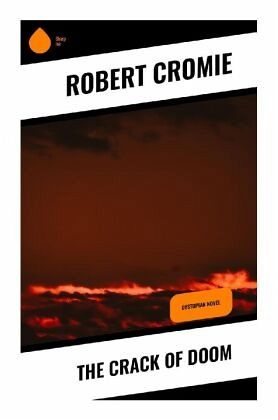
The Crack of Doom
Dystopian Novel
Versandkostenfrei!
Versandfertig in 6-10 Tagen
9,00 €
inkl. MwSt.
Weitere Ausgaben:

PAYBACK Punkte
0 °P sammeln!
In 'The Crack of Doom,' Robert Cromie weaves a remarkable tale that intertwines elements of science fiction and philosophical inquiry, exploring the ominous implications of technological advancement. Set against the backdrop of the late 19th century, a time of fervent scientific discovery, Cromie artfully blends adventure and allegory, presenting a narrative that not only entertains but also provokes critical thought about humanity's grasp on innovation and its potential perils. The book's vivid prose and richly drawn characters serve as vehicles for exploring the darker corners of human ambit...
In 'The Crack of Doom,' Robert Cromie weaves a remarkable tale that intertwines elements of science fiction and philosophical inquiry, exploring the ominous implications of technological advancement. Set against the backdrop of the late 19th century, a time of fervent scientific discovery, Cromie artfully blends adventure and allegory, presenting a narrative that not only entertains but also provokes critical thought about humanity's grasp on innovation and its potential perils. The book's vivid prose and richly drawn characters serve as vehicles for exploring the darker corners of human ambition and the inevitable confrontation with fate. Robert Cromie, a contemporary of H.G. Wells and a notable figure in the realm of speculative fiction, was deeply influenced by the sweeping changes of the industrial age that marked his youth. A journalist and an enthusiastic advocate for scientific progress, Cromie's reflections on society's relationship with technology resonate throughout 'The Crack of Doom.' His unique perspective on the balance between human curiosity and ethical responsibility imbues the narrative with a sense of urgency and foresight. Readers seeking an engaging literary exploration of the unforeseen consequences of innovation will find 'The Crack of Doom' to be an essential addition to their collection. Cromie's prescient themes remain strikingly relevant today, making this novel a thought-provoking read for anyone interested in the interplay between science, philosophy, and the human condition.













